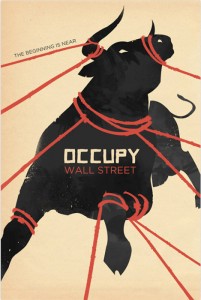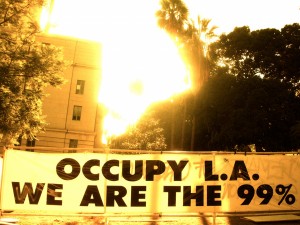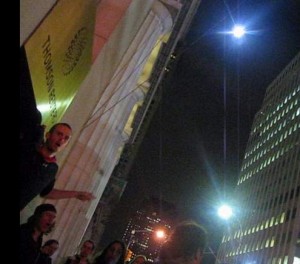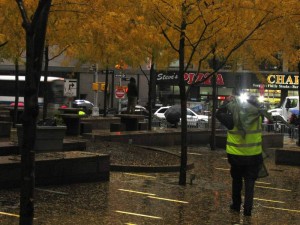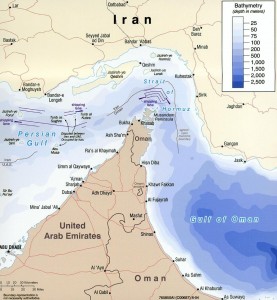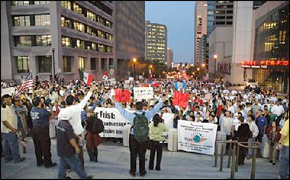Podcast: Play in new window | Download
Updates:
- Michael Smith: Obama Balance Sheet 2011
—
Year End Look Back 2011 – Jim Lafferty
Looking back on 2011, amid the colossal economic failure and compounded erosion of civil liberties, there were slivers of bright light to note, such as the wonderful activism and momentum of the Occupy Wall Street movement. The subsequent pulling together of activists, unions and lawyers marked this year in launching the foundation of a vital movement. Will this emerging movement continue to build and hold together to counter and restructure a corrupt and crumbling edifice of democracy?
Attorney Jim Lafferty:
- I’m now 73, I’ve not been as excited and optimistic about a movement since the sixties as I am around the occupation movement.
- It’s very exciting, it’s very broad and a lot deeper than the 1 percent would like to acknowledge.
- We don’t have a great sense of history in this country, we certainly don’t learn it in our high schools.
- Many of the young people that are at the heart and soul of this new movement are not the beneficiaries of a historical context of which to organize ourselves.
- It’s proven that you don’t need that to make a splash.
- When you go to the heart of capitalism itself which is what this movement does, its not surprising that they were met with fierce and brutal police reaction.
- They were ignored by the press in the first week or two, much of the press has been a distortion of it since.
- Reading the picket signs alone would tell you damn well what they want.
- This is an economic injustice movement. Capitalism can’t produce the type of economic justice that these tens of thousands are demanding.
- When Bonnie and I were arrested in New York at OWS, we even had cops saying to us, we’re part of the 99 percent.
- People aren’t making it and can’t make it in this country given the skewed and unjust economic system that capitalism represents.
- The US Census Bureau acknowledges that 100 million people are living in poverty or are in danger of slipping into poverty.
- When a presidential election cycle comes up, anti-war movements, civil rights movements, womens’ rights movements, tend to leave the streets.
- Don’t fall for the trap of electoral politics.
- Phase 2: I don’t know if that (encampments) are a sustainable way of operating a movement in this country.
- Here in L.A., one of the unions SIEU offered an indoor space to the movement where they can organize.
- Last week we shut down a number of home foreclosure auction sales.
Guest – Jim Lafferty, Executive director of the National Lawyers Guild in Los Angeles and host of The Lawyers Guild Show on Pacifica’s KPFK 90. 7 FM to reflect back on 2011 and a look ahead.
——-
Occupy Wall St and the Brecht Forum
Kazembe Balagun, an activist and cultural organizer from the Bronx discusses the activism within the Occupy Wall Street movement through the Education and Empowerment Committee. Kazembe is also the program director at the Brecht Forum.
Kazembe Balagun:
- When I went down to Zuccotti, what I found was a vibrant community that had already started.
- It did really speak to the frustration of the current economic and political climate.
- As a public educator at the Brecht Forum you want to provide a context for these demonstrations.
- You want to have a conversation with them, in that this is not the first time this happened.
- We brought our comrade, Rick Wolff down there, and had a talk with almost 300 people. All great movements have great literacies.
- We have a movement where people are not only learning to speak in public but we’re all listening to each other.
- Wall Street has been the site of oppression for all people. Primarily because the wall that was built outside Wall Street was built to keep the Native Americans outside the business district.
- Black and brown communities have been the hardest hit in terms of foreclosure rates, stop and frisk. So what we have now is Occupy the Bronx, Occupy Sunset Park.
- We can occupy ourselves, that we can step into a new way of public life.
Guest – Kazembe Balagun, program director at the Brecht Forum.
——
Unrelenting Global Economic Crisis: A Doomsday View of 2012
Continuing the look back and now ahead to 2012, we’re glad to have back with us, Jim Petras, author and former Professor of Sociology at Binghamton University, New York to discuss his latest article published on Global Research Unrelenting Global Economic Crisis: A Doomsday View of 2012. In this article Petras enumerates key events that will inevitably shape the next 12 months. He starts with – The Collapse of the European Union, then the recession deepens in United States, new wars erupt in the midst of this crisis.
These events, will lead to coming wars that will end America as we know it, meanwhile Europe sinks deep into austerity and class warfare intensifies. Petras says, that in response mass movements will continue to build, recede and re-emerge. Protests and rebellions, social revolutions and political power across the globe will be important catalysts.
- The economy has never really recovered from the recession. All the trends from the early Spring have been on the negative side. Instead of take off in 2012, we see the opposite taking place, slow down in investment, slow down in overall exports, slow down in financing the employment.
- What we do see is a big profit for the speculators. The speculators are back with a vengence. Carlyle has reported over 12 billion dollars in profits for the first 11 months.
- The speculators are working, the housing market is terrible.
- The debt has skyrocketed so much, so much was thrown at the bank bailouts, that there arent’ enough resources to pull us out of this recession.
- The Democrats are making deals with the Republicans to actually cut back on federal spending because of the deficit. I see us moving into recession by the end of Spring and heading toward worse a depression by the end of the year.
- This is all going to be exacerbated by a move toward a war with Iran, which will push oil prices up over 150 USD/barrel. The powers that are moving toward that war particularly, the Zionist power configuration.
- The consequences will be very very catastrophic for the economy of the United States.
- Speculators are back in power, the housing market is negative, the job employment is negative, 2011 trends are moving down toward recession, I don’t see any counter moves.
- Cumulative debt payments are negative, I don’t see any possibility of a injection of major public spending of which would turn this around or at least ameliorate it. Keep it at zero growth.
- Keep us at stagnation, rather then negative territory.
- Obama did nothing to stimulate a new structure in America which could take government support and move forward. What he did is pour the money into the people who caused the crisis on Wall Street.
- After Obama gets elected you’re going to see the most horrendous attack on the social security programs, medicaid, medicare. He’s holding back because he wants to get elected.
- He’s looking to slash and burn the only social programs that sustain American living standards for millions of workers who paid into this fund.
- This isn’t an entitlement program, this social insurance that has been paid for by American workers.
- He’s going to go into Iran, because he told the reformed Jews, all options are on the table, and he stationed an armada of Air Force smack facing Tehran. That’s a move toward war.
- Read Netanyahu and Barack, the defense minister of Israel and the Prime Minister of Israel, then the message gets transmitted to the New York Times, then it gets transmitted to Washington, you get a third hand.
- Why not look at the press releases coming out of Tel Aviv, if you want to know what tomorrow’s news is going to be.
- I think we’re going to see something new coming out of this great discontent.
Guest – James Petras, author and former Professor of Sociology at Binghamton University, New York.
